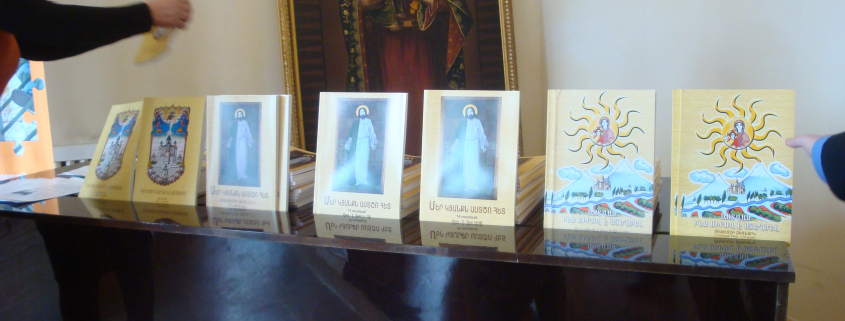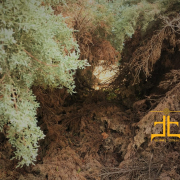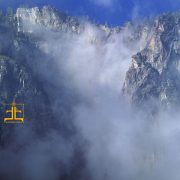Personal Responsibility
Armodoxy for Today: Personal Responsibility
Late one night, as I was getting ready to turn in, the phone rang. It was early-on in my ministry. Later on I learned that there’s something about the inconvenient hours that seem to coincide with these types of calls. It was one of my parishioners, asking if I come down to the hospital to offer a prayer for her husband, Marty, who was taken in by ambulance.
I got in my car and drove cross-town to a San Jose hospital, not knowing what to expect. The call was a quick one, not enough time to ask for details.
At the hospital’s reception area, I asked for the patient by name and they directed me to the intensive care unit. I made my way through the hallways and found the doors to the ICU. Just next to it was the waiting room for the family members. The patient’s wife, Rose, stood up and came running over to me. She gave me a big bear hug and between the tears she scratched out a few words, “Why did God take him away?”
I was late, at least that’s how I understood this scene. Did I mention it was early on in my ministry? I went into the ICU where Marty’s breathless body lay on a hospital bed. With Rose and the family around, we offered a prayer for his soul and covered the body with the bed sheet.
Why did God take him away? Her question haunted me at that moment and for years to come. At the moment I almost crumbled under the weight of the question. I felt as if I needed to give an answer. She was asking me to defend God! Why did God take him away?
We spent some time in the ICU – an environment that is very conducive for pastoral counselling, and yes, people look at the priest as one who can and will answer for God. It was sometime later that I understood that God doesn’t need defending. He can take care of Himself quite well. Thank you very much. But even that night, on my way back home I came to realize the God factor is merely a comfort for the family. God is a catch-all, a way of passing along the pain off of yourself. The reality was that Marty was quite a large man, up in age, struggling with diabetes, and had a three-pack-a-day smoking habit. Perhaps God did “take him away” but the circumstances around his death point to something more earthly and more personally controllable.
One of the many criticisms of religion is that it eschews personal responsibility from the practitioner. It is a problem that becomes even more accented with personal saviors and the deities that control our actions as if we were pieces in a cosmic chess game.
We believe that each of us is endowed with Free Will, and as such, we create our own lives, our own destinies, so to speak. We eschew the term destiny because as long as you – we – have the ability to do otherwise, responsibility for our lives is not destined, whether by God or by the stars, or cards, or anything outside of our selves.
And it follows that on the basis of personal responsibility, judgement takes place. Through the Gospels, Jesus invites us to take responsibility for our lives. He points to the beauty of life in his parables, a beauty that is manifest in our willingness to engage with life.
In this season of the Asdvadzadzin, let us continue with the John 15 discourse about the vine and branches. The operative word to listen for is “if” – that “if” is defined by our free will,
“I am the vine, you are the branches. He who abides in Me, and I in him, bears much fruit… By this My Father is glorified, that you bear much fruit; so you will be My disciples. As the Father loved Me, I also have loved you; abide in My love. If you keep My commandments, you will abide in My love, just as I have kept My Father’s commandments and abide in His love.” (John 15:5-13)

 2009 Fr. Vazken
2009 Fr. Vazken
 2025 Epostle
2025 Epostle
 2009 Fr. Vazken Movsesian
2009 Fr. Vazken Movsesian 2012 Fr. Vazken
2012 Fr. Vazken


 2014 Fr. Vazken
2014 Fr. Vazken 2023 Fr Vazken
2023 Fr Vazken
Leave a Reply
Want to join the discussion?Feel free to contribute!